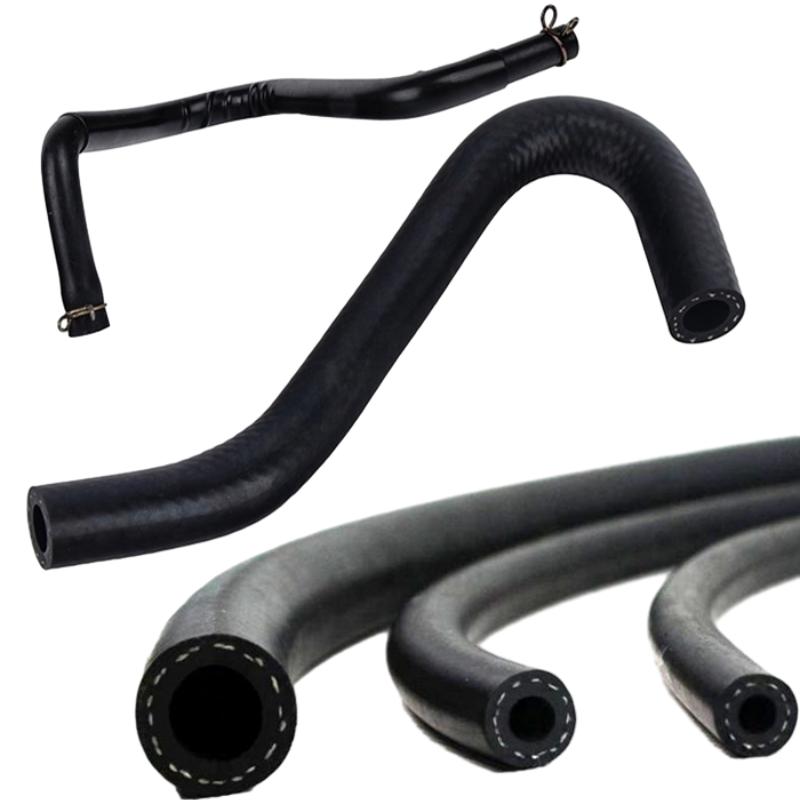Innovative Design for Durable and Flexible AC Refrigerant Hoses in Modern Cooling Systems
जुलाई . 23, 2024 15:13 Back to list
Innovative Design for Durable and Flexible AC Refrigerant Hoses in Modern Cooling Systems
Flexible AC Refrigerant Hose An Overview
In the realm of HVAC (Heating, Ventilation, and Air Conditioning) systems, the efficiency and reliability of heating and cooling processes depend on various components, one of which is the flexible AC refrigerant hose. This crucial element serves as a conduit for refrigerant transfer between different parts of an air conditioning system, ensuring optimal performance and comfort in residential and commercial spaces.
Understanding the Functionality of Refrigerant Hoses
Refrigerant hoses are designed to handle the high pressures and temperatures typical of refrigerants circulating within an AC system. The term flexible refers to the hose's ability to bend and maneuver easily, allowing for installation in tight or awkward spaces. This flexibility is vital as it provides the versatility needed to connect components such as the compressor, evaporator, and condenser without compromising the integrity of the refrigerant circuit.
The construction of these hoses typically includes multiple layers that provide durability and resistance to wear. The inner layer is often made of specialized materials that can withstand the corrosive nature of certain refrigerants. The outer layer is designed to protect against physical damage, UV exposure, and other environmental factors that could potentially lead to leaks or failures.
Key Characteristics of Flexible AC Refrigerant Hoses
1. Pressure Ratings Flexible AC refrigerant hoses are engineered to meet specific pressure ratings, ensuring they can handle the demands of high-pressure refrigerants without risking ruptures or leaks. Common pressure ratings range from 300 psi to over 600 psi, depending on the hose size and application.
2. Temperature Tolerance These hoses are also designed to function effectively across a wide range of temperatures, from extremely low temperatures during the cooling cycle to elevated temperatures during the heating phase. This temperature tolerance is crucial for maintaining system efficiency and preventing hose degradation.
flexible ac refrigerant hose

3. Compatibility with Refrigerants As the HVAC industry evolves, newer refrigerants with different chemical compositions are introduced. Flexible AC refrigerant hoses are produced from materials that are compatible with various refrigerants, including R-410A, R-22, and others. This compatibility is vital for ensuring the longevity of the hose and the overall HVAC system.
4. Certifications and Standards Many flexible AC refrigerant hoses are manufactured in accordance with industry standards such as SAE (Society of Automotive Engineers) and UL (Underwriters Laboratories) guidelines. These certifications ensure that the hoses meet safety and performance specifications mandated by regulatory bodies.
Applications and Importance in HVAC Systems
Flexible AC refrigerant hoses are integral to both residential and commercial air conditioning systems. Their ability to facilitate the transfer of refrigerants directly impacts system efficiency, cooling capacity, and overall comfort. A well-designed refrigerant hose not only helps maintain the proper flow of refrigerant but also minimizes the risk of leaks, which can lead to decreased efficiency and environmental concerns regarding refrigerant release.
In addition, regular inspection and maintenance of these hoses are critical as they can wear over time. Factors such as exposure to heat, UV rays, and vibrations can affect their performance. Technicians should be trained to identify signs of wear, such as cracks, bulges, or leaks, to ensure early intervention and replacement.
Conclusion
In summary, flexible AC refrigerant hoses are vital components of HVAC systems, contributing significantly to the effectiveness and efficiency of heating and cooling processes. Their robust design, compatibility with various refrigerants, and ability to withstand extreme conditions make them indispensable in modern air conditioning technology. As the HVAC industry continues to advance, ongoing innovations in hose technology will likely enhance the performance and sustainability of air conditioning systems, underscoring the importance of these flexible conduits in delivering comfort in our daily lives.
